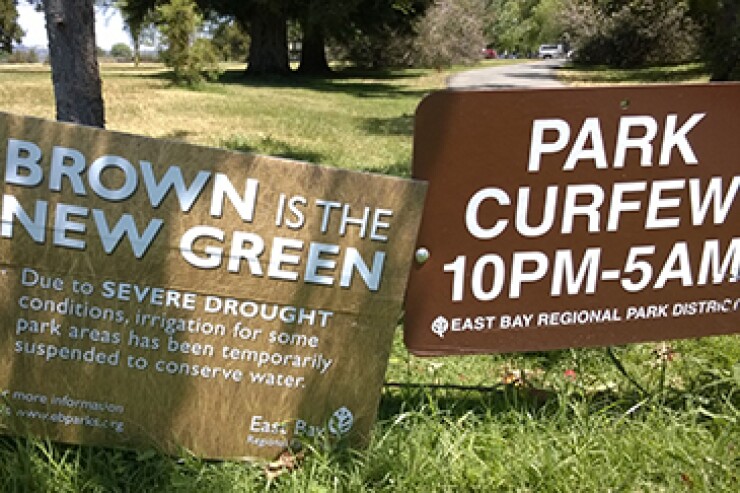
LOS ANGELES — A California water district's bond covenant violations could have broader implications amid drought-driven conservation efforts.
North Coast County Water District filed a covenant-breach related default notice January 14 on the Municipal Securities Rulemaking Board's EMMA website on its $6.1 million Series 2012C water and wastewater revenue bonds. The debt was issued through the California Statewide Communities Development Authority, a conduit issuer.
The district, which supplies water to Pacifica, a coastal city of 37,000 south of San Francisco, reported that it violated its debt service covenants by failing to maintain revenues at 120% of debt service for fiscal year 2015.
No debt service payments were missed.
In addition to hiring a consultant, the water district reported it is in the process of completing its financial plan and anticipates a rate increase within the next three to six months.
"Although the utility has hired a consultant to help remediate its near-term issues, we reason that more systems were similarly stressed in FY15 and could see their own covenant satisfaction threatened," Municipal Market Analytics said in a default trends report.
The municipal bond market has begun to pay far more attention to water-related issues over the past year – and not just in California, said Matt Fabian, an MMA partner.
"This is something utilities across the country are wrestling with," Fabian said. "The west and southwest are experiencing drought conditions, but in the northeast they have too much water and inundation from rising sea levels."
North County's covenant violation indicates that the increased attention paid to water issuers is warranted, Fabian said.
He expects the industry will see more covenant violations, but he doesn't anticipate widespread problems despite the conundrum faced by water utilities and providers.
Most water utilities, particularly in drought-affected areas, have already raised rates over the past 10 years, Fabian said. California's successful conservation efforts that have reduced usage adding to the revenue pressure on many water utilities.
Some water users' conservation habits will remain, even if this winter's rains signal hope for an end to California's drought.
"People tearing up their lawns and putting in gravel is not something that is likely to reverse," Fabian said. "Conservation efforts have taken hold, so no matter what happens with the rain, we will see less usage going forward."
Water districts are reconfiguring rate charges with some shifting more of the charges to the fixed portion of the bill, Fabian said. The problem is that if water utilities lessen the ability or ratepayers to lower bills by conserving water, it could hamper conservation efforts, he said.
California's State Water Board extended the governor's emergency water conservation regulations through October 2016 on Tuesday.
Many of the state's reservoirs and groundwater basins remain depleted and the need for continued water conservation persists due to the severity of the water deficits over the past four years, water board officials said.
"If we continue to receive a lot of rain and snow in February and March, we may scale back the conservation requirements further, drop them, or move to another approach," Felicia Marcus, chair of the State Water Resources Control Board said in a statement.
Water board officials are hopeful the state has turned the corner on the drought, but Marcus said it is just too soon to tell.





